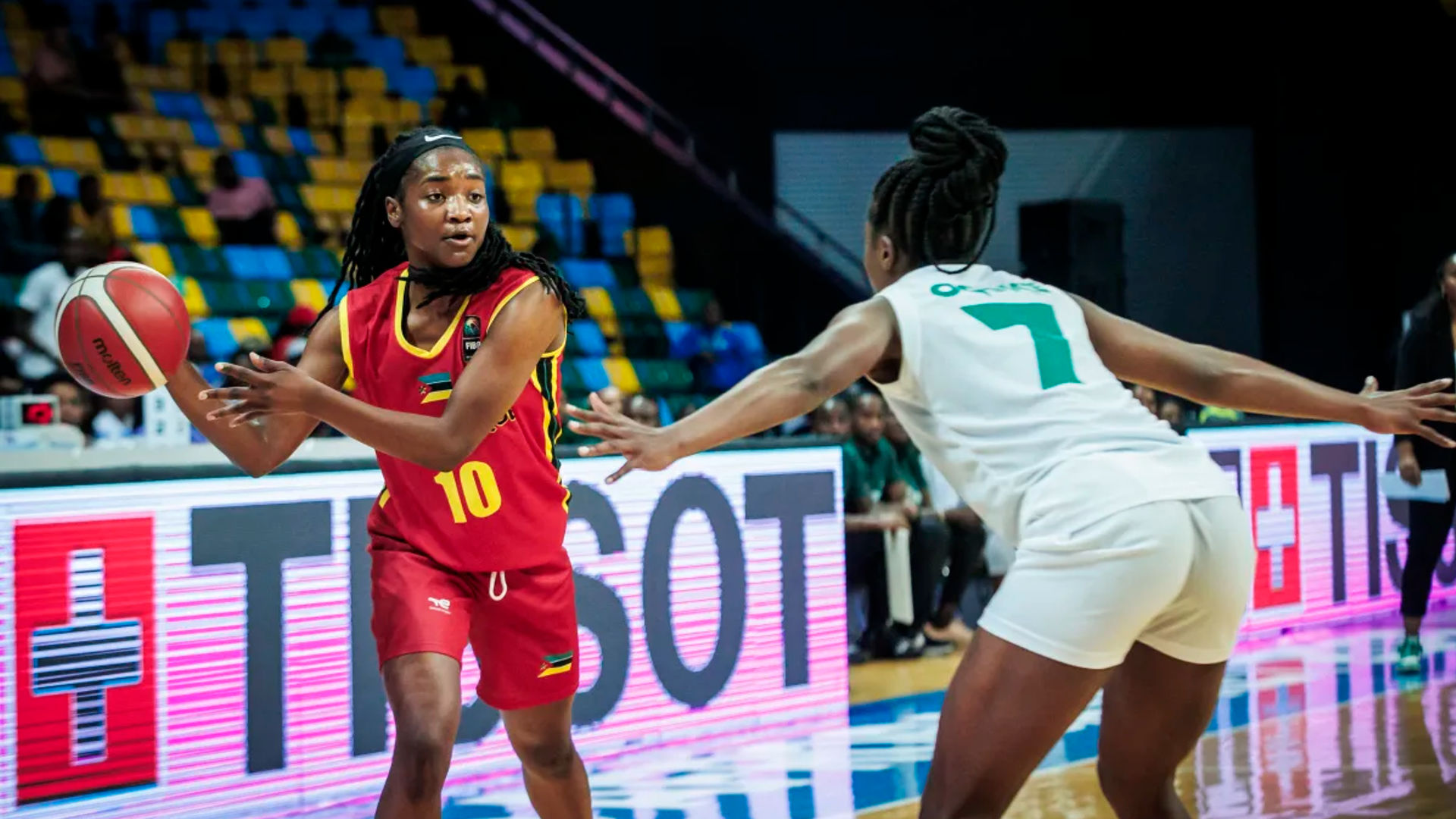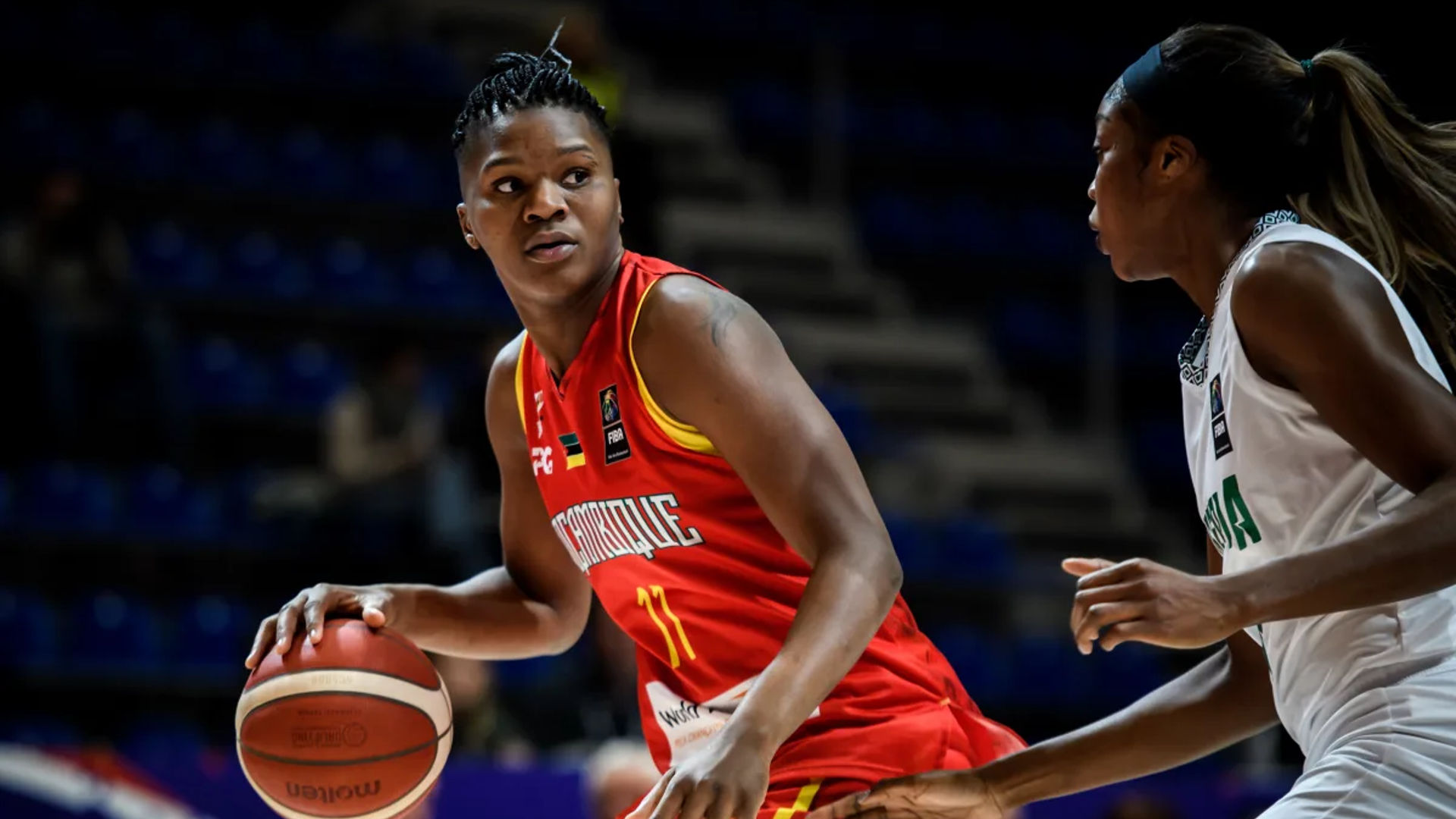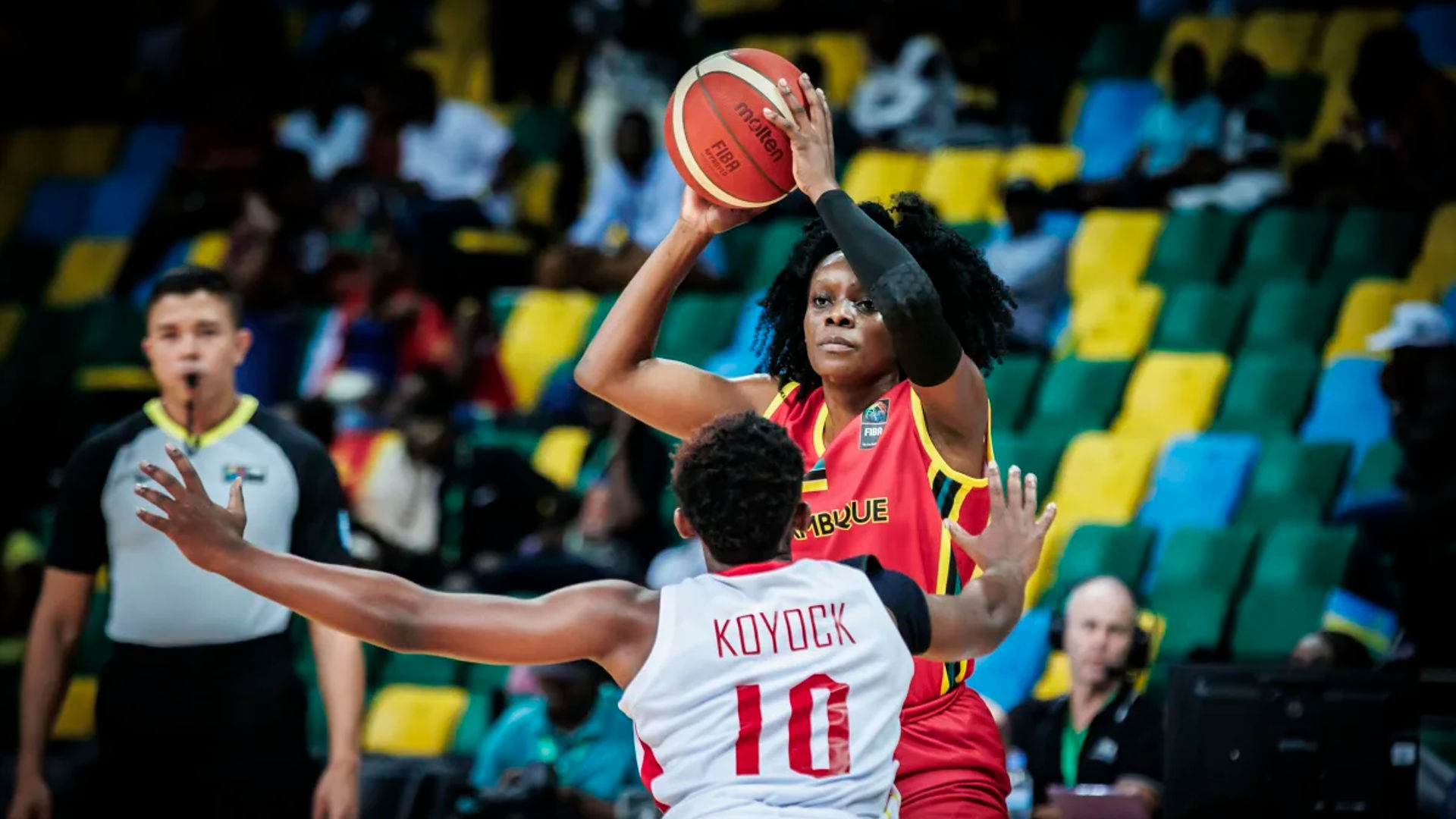Mozambique’s women’s basketball team returns to AfroBasket 2025 with unfinished business. After years of near-misses and a wild card entry, they arrive in Côte d’Ivoire driven by redemption. With seasoned leaders and rising stars, they’re not just chasing wins — they’re determined to rewrite their story on Africa’s biggest stage.
Last Updated on
July 15, 2025


They’ve stood on the edge of triumph more than once — close enough to see the confetti, but never quite beneath it. From silver medals in decades past to agonizing quarterfinal exits in recent years, Mozambique’s women’s basketball team knows the rhythms of both celebration and heartbreak. Now, as the 2025 FIBA Women’s AfroBasket approaches, they return to the stage not just to compete, but to change the ending.
When the tournament tips off in Côte d’Ivoire on July 26, Mozambique won’t simply be chasing wins. They’ll be chasing vindication.
Their presence in Abidjan carries a story of both perseverance and imperfection. This year’s entry didn’t come through a qualifying triumph, but through a wild card — extended after a narrow aggregate loss to Angola threatened to shut the door on their campaign. For a country ranked fourth in Africa and 32nd in the world, missing out would have been more than a disappointment. It would have been a rupture in a long-standing tradition of excellence.
And tradition matters here. Mozambique’s national team has been a consistent presence near the top of the African women’s game — a fixture in the top six at nearly every AfroBasket they’ve entered. Silver medals in 1986, 2003, and 2013 mark the high points of their journey. And in 2014, they stepped onto the global stage at the Women’s World Cup in Turkey — a milestone moment that still echoes through the program.

That legacy isn’t just statistics. For players like Chanaya Pinto, it’s personal.
“I remember watching the 2013 team in Maputo,” Pinto told Africa Basket. “They made it to the World Cup. They never gave up. I saw them fight, and I promised myself I would do the same.”
Now Pinto, a versatile 6-foot-2 forward, finds herself at the center of Mozambique’s next chapter. With 6.7 points per game at the last AfroBasket, she returns as both leader and learner — eager for a rematch against some of the continent’s best.
“We’re going to Côte d’Ivoire to compete and make a mark,” Pinto says. “Facing Nigeria again is exciting. They’ve set the bar high, and we want to rise to meet it.”
Mozambique’s group is one of the tournament’s most demanding. Group D features four-time defending champions Nigeria and a surging Rwanda team that shocked many with their fourth-place finish in 2023. But if Mozambique is to navigate this draw, it will take more than ambition. It will take experience — and they have it.
At 34, Leia Dongue remains the team’s cornerstone. A dominant forward with a résumé that stretches from Angola to Europe, Dongue is preparing for her fifth AfroBasket. Her presence alone elevates Mozambique’s potential ceiling. Though she missed the 2015 and 2021 editions, she has been named to the All-Star Five in nearly every tournament she’s played. Even in last year’s outing — where she didn’t make the team — her influence was unmistakable.

For Dongue, it’s not just another tournament. It’s a return to form, a chance to lead a generation that grew up watching her dominate.
Around her, familiar faces return. Tamara Seda brings size and interior presence. Ingvild Mucauro adds perimeter scoring and veteran calm, while Anabela Cossa remains a steady two-way contributor. Each brings with them not only club-level titles and overseas experience, but also the scars and insight that come with international competition.

This is what makes Mozambique dangerous. Not just the talent, but the cohesion. A team shaped by years of playing together, losing together, learning together.
They don’t arrive as favorites. Nigeria, Senegal, and hosts Côte d’Ivoire will draw more headlines. But Mozambique has been in this position before — underestimated, written off, quietly preparing. And while they may not be the loudest team in Abidjan, they could be the most determined.
In a tournament that demands both resilience and execution, they’ve brought both. Their past has shaped them. Now, they’re ready to shape their future.
For Mozambique, this is more than a campaign. It’s a return. A reminder. And possibly, at long last, a rewrite.
[Photography/Imagery : FIBA]